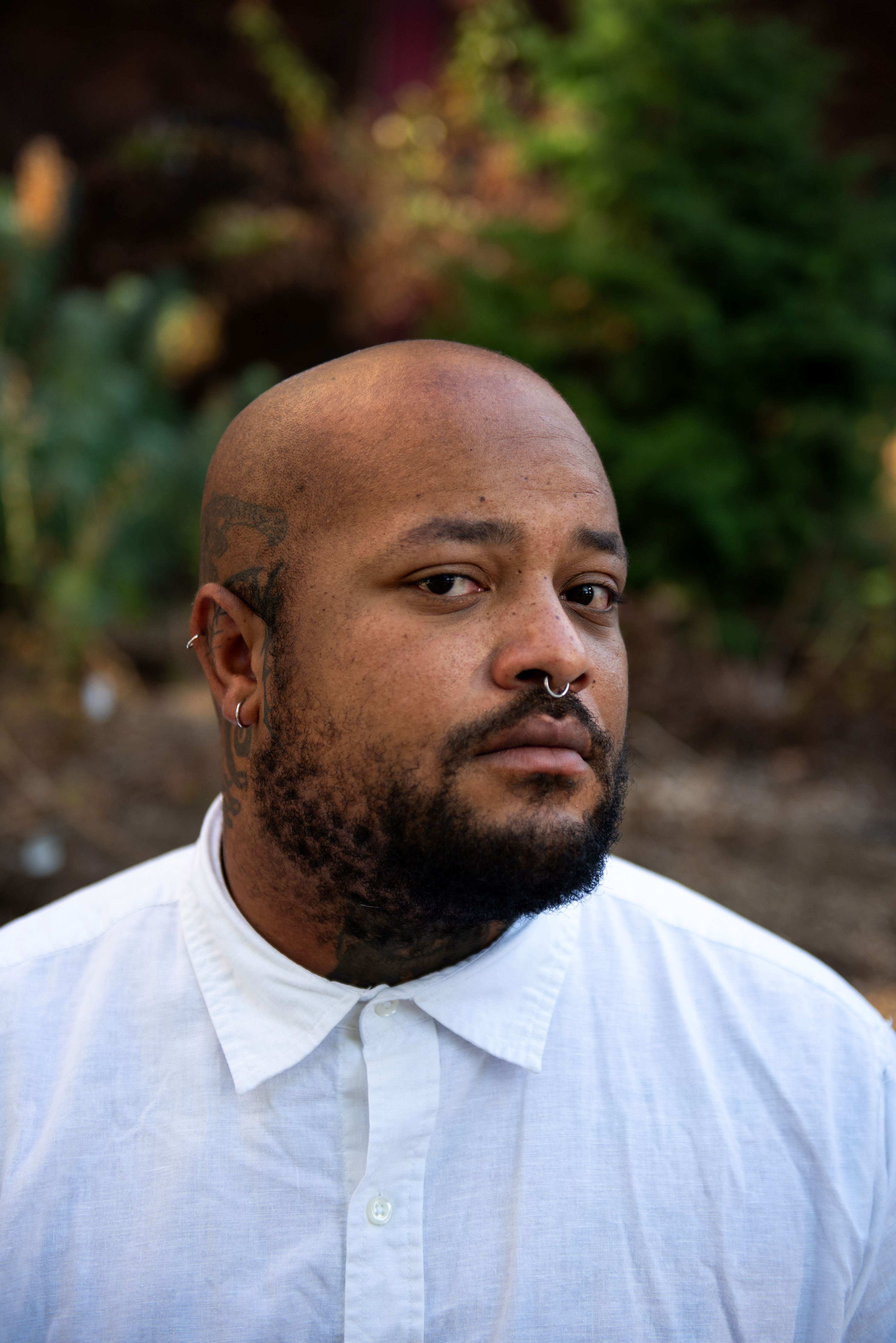Khalil Callier
31, BIPOC Case Manager at Outside In

2025 Prize Winner
Since its founding in 1968, Outside In has been a beacon of hope for Portland’s at-risk and houseless youth population. The organization has pioneered not only the field of youth crisis support but also harm reduction—introducing early needle exchange programs, a 24-hour crisis helpline, fentanyl residue drug testing, and Narcan distribution. Its integrated system of cutting-edge, sometimes controversial wraparound services has saved countless lives over the decades. But practical (and sometimes divisive) care alone doesn't power such a complex network of service, particularly one over four decades strong.
That longevity is owed in large part to people like Khalil Callier, a BIPOC case manager with Outside In whose own lived experiences bring extraordinary insight to their work. Callier’s ability to support, nurture, and build futures for clients is informed by a deep personal understanding of the struggles many of the young people seeking Outside In's services face.
The nonprofit’s mission of improving the lives of Portland’s most vulnerable—houseless and at-risk youth—is what first drew Callier to the organization. “One of my friends told me about Outside In and the harm reduction work that happens here, that they are one of the pioneers, and I was like, ‘yo, I think I want to work with people that look like us,’” says Callier, who themself is black, neurodivergent, and queer. “Because I think only us can get us out.”
The “out” Callier refers to is homelessness, and the “us” is BIPOC youth, who often need not just housing security but also access to education, job placement, and trauma-informed healing. Over six years with Outside In, Callier has worked tirelessly to provide that support. They steadily advanced within the organization, moving from harm reduction peer, to group leader, to peer advocate, to youth advocate, and eventually to case manager.
In that role, Callier began building programming specifically for BIPOC youth, strengthening Outside In’s reach and reinforcing its existing community bonds. “I’m in recovery,” Callier explains.
“I’ve had the experience of being homeless, getting sober, and putting my life back together,” they continue. “I was hungry for this agency because of all the work they’ve done in the greater community. And whenever I nerd out about something, I just go into that dream space and ask, ‘How big can we make it? What can we build this into?’”
Callier’s vision quickly translated into impact. They became the driving force behind Outside In’s BIPOC outreach, successfully securing a nearly $400,000 federal grant through the Youth Experiencing Homelessness Program. This funding has allowed the organization to expand culturally responsive services and better address the unique needs of BIPOC youth and young adults.
Beyond grant work, Callier leads the Black Men’s Group, which serves 25 youth, organizes six annual cultural immersion trips across the country from Seattle to Washington, D.C., and is currently housing 25 transitional BIPOC youth. Their leadership demonstrates a commitment to not only immediate survival but also long-term empowerment and belonging.
In Callier’s nomination letter, Interim Co-Executive Director Iris Martin described them as someone who “leads with humility and centers clients’ needs through a culturally responsive approach.” Martin added, “Their work uplifts both participants and colleagues, setting a powerful example of integrity and care in service delivery.”
It's true: Callier has a natural jubilance that lightens our conversation, heavy as its themes are. In fact, it's remarkable how Calllier remains so humble yet joyful about their work. “There were so many people throughout my life that showed me this path,” they reflect. “I just… I love walking alongside someone and seeing their growth.”
Photo by Kenzie Bruce
Profile by Brianna Wheeler
 Skip to main content
Skip to main content